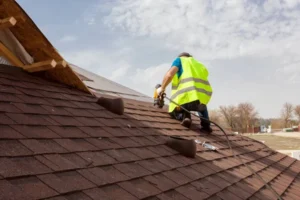Do you dread turning on the lights? Does a simple flick of a switch become a whole production? Then you might be dealing with home electrical problems and don’t even know it.
Common home electric issues include things like not having power at all or flickering lights. These issues worry homeowners, and they keep them up late at night.
If you are experiencing any kind of electrical problem in your home, make sure you find a qualified, seasoned professional in your area to help you out.
We’re helping you recognize the five most common home electric problems and how to potentially fix them.
1. You Are Having Circuit Breaker Issues
Common home electric problems that homeowners deal with are circuit breaker issues. Circuit breakers are designed to prevent fires from occurring due to overheated wires.
However, when a circuit breaker is constantly tripping the circuit, you may find yourself often needing to reset it and struggling with flickering lights.
2. Poorly Wired Connections
Poorly wired connections are a very common electric problem that homeowners have to deal with. When a homeowner notices that their outlets have less power than usual, this could be an indication of a poorly wired connection.
This can happen when an incorrect gauge of wire is used, when the wiring is done incorrectly, or when a wire becomes loose or detached.
This can also cause electric currents to travel to other appliances and fixtures, which can cause them to malfunction or even shock someone.
To ensure that these problems get corrected, it is important to hire a qualified electrician to inspect and rewire the connections as needed.
A Generac generator dealer can be a great help as they specialize in portable, residential, and commercial generator sales, installation, and service.
3. Overloaded Circuits
Overloaded circuits are one of the most common home electrical problems homeowners deal with. When multiple electric appliances are plugged into the same circuit, they can draw too much power, causing an overload.
Signs of an overloaded circuit include flickering or dimming lights, tripped circuit breakers and outlets, or warm outlets and switches.
To avoid overloading a circuit, reduce the number of items plugged in on either side of a wall outlet, or add more circuit breakers. Be sure to unplug any items that are not in use to lower the risk of overloading a circuit.
4. Wall Outlet Plug Falls Out
One of the most common home electrical problems homeowners deal with is when a wall outlet plug falls out. This can be a cause for alarm, as it suggests a potential problem with the wiring.
Homeowners should check the outlet and plug for damage first, such as cracks, corrosion, or broken or missing pieces. If the plug looks good, homeowners should then examine the outlet, making sure the wiring is intact, and there are no loose connections.
5. Environmental-Related
Rain and snow can damage outdoor wiring, causing shorts and even blown fuses. Taking the time to inspect the electrical wiring regularly can help to prevent many of these issues.
Professional Home Electric Services: Is It Worth It?
Overall, homeowners should be aware of common electric problems and be prepared to handle them when necessary.
Call an electrician to make sure the job is done correctly, and take preventative measures to keep your home electric system safe and running.
With proper maintenance and check-ups, you can become an informed homeowner and ensure your home’s electrical system works safely and efficiently.
Read our other blogs if you’re interested in learning additional advice about ways to improve your home life.









